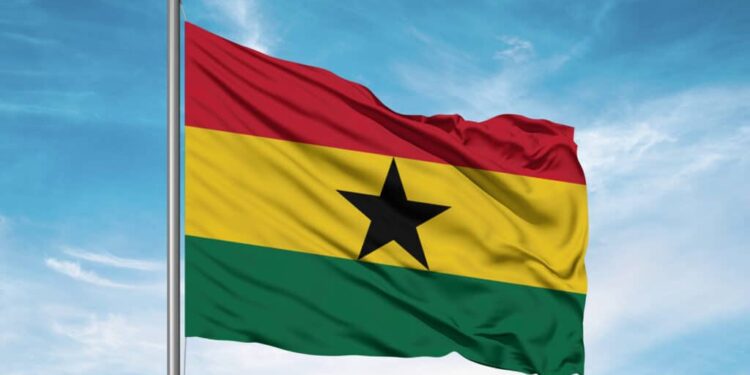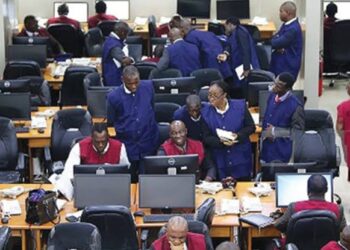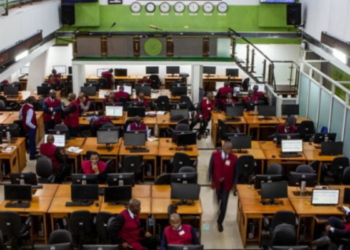The Republic of Ghana has initiated a significant Eurobond debt restructuring offer, aiming to alleviate its growing debt burden as the country grapples with severe economic challenges, including inflationary pressures, a depreciating currency, and mounting fiscal deficits.
The Exchange Offer and Consent Solicitation, announced by the Ministry of Finance on September 5, 2024, forms a crucial part of the government’s strategy to restore fiscal stability and reduce its unsustainable debt load.
The initiative is seen as a vital component of Ghana’s broader recovery plan, which is backed by the International Monetary Fund (IMF) under a $3 billion Extended Credit Facility.
Details of the Exchange Offer
The restructuring plan offers bondholders the option to exchange their existing Eurobond holdings for new bonds with revised terms. Ghana is proposing two restructuring options: the Par Menu and the Disco Menu.
- Under the Par Menu, bondholders can swap their current bonds for new long-term bonds with a lower interest rate of 1.5%, with repayments stretched until 2037.
- Alternatively, the Disco Menu offers higher interest rates of up to 6%, but with shorter maturities, ending in 2029 or 2035, depending on the bonds chosen. Both options provide bondholders with cash payments as part of the restructuring.
- This restructuring targets a broad array of Eurobonds, including the $1 billion 7.625% Eurobond due in 2029 and the $1.25 billion 8.125% Eurobond due in 2032, totaling billions of dollars in external debt.
- By spreading repayments over a longer period and adjusting interest rates, Ghana aims to reduce its immediate debt service obligations and stabilize its finances.
The Exchange Offer also includes a Consent Solicitation that seeks bondholders’ approval to amend the terms of specific bonds.
This includes bonds guaranteed by the World Bank, where the restructuring plan proposes to terminate the World Bank’s guarantee in exchange for a one-time payment to bondholders.
Ghana’s Economic Struggles
Ghana has been hit hard by a series of global and domestic economic challenges. The COVID-19 pandemic, coupled with the Russia-Ukraine war, has exacerbated inflation, disrupted global supply chains, and weakened Ghana’s currency, the cedi.
- These challenges have led to soaring inflation, which peaked at over 50% earlier in the year, and worsened the country’s debt situation.
- In December 2022, Ghana was forced to declare a sovereign default, suspending debt service payments on Eurobonds, commercial loans, and most bilateral debts. While it continued servicing multilateral debts, this default triggered tense negotiations with creditors and bondholders.
- In a bid to stabilize the economy, Ghana has sought support from the IMF, leading to a $3 billion program aimed at restoring fiscal discipline and debt sustainability.
- The domestic debt restructuring, launched in late 2022, saw nearly 90% participation, which helped reduce coupon rates and extend maturities, giving the government some breathing room.
However, the external debt restructuring, which includes Eurobond holders, is seen as the next critical step in Ghana’s recovery.
Bondholders’ Support for the Restructuring
In a move that strengthens Ghana’s position, the Regional Bondholders’ Committee, representing over 25% of outstanding Eurobond holders, has thrown its weight behind the Exchange Offer.
- Recall Nairametrics reported that African bondholders had, for the first time ever, come together to form a unified negotiating bloc, a decisive step towards protecting the interests of its members.
- The Committee had reached an Agreement in Principle with the government in June 2024 on the terms of the restructuring and has now formally endorsed the current offer.
- In a statement issued sent to Nairametrics on Thursday, the Committee expressed its support for the restructuring and encouraged other bondholders to participate.
“The legal and financial terms of the Exchange Offer are in line with the Agreement in Principle. We recommend early consent to maximize value for consenting bondholders,” the statement read.
The Committee’s backing is significant, as it represents a substantial portion of the creditor base and is likely to influence other bondholders’ decisions.
The Committee also emphasized its ongoing commitment to Ghana’s economic recovery, stating that its members are key stakeholders in the country’s economy and remain committed to supporting the government’s fiscal and economic reforms.
What’s next for Ghana?
The success of the debt restructuring hinges on widespread participation from bondholders.
- Ghana has set a deadline of September 30, 2024, for bondholders to accept the terms of the Exchange Offer.
- Those who consent early may benefit from additional incentives, including consent fees, which are designed to reward bondholders for their participation.
- The outcome of this restructuring is critical not only for Ghana’s fiscal health but also for the broader success of its IMF-backed economic reform program.
Without a successful debt restructuring, Ghana risks prolonging its economic struggles, which could further erode investor confidence and delay recovery.



















